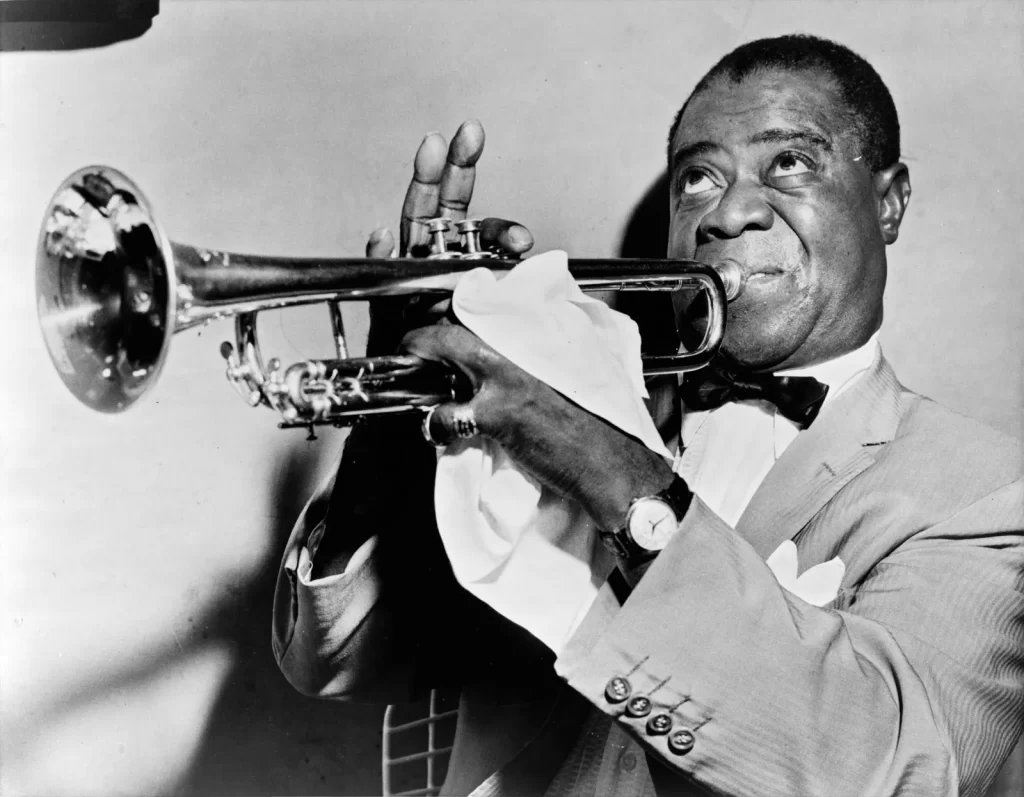Noted by some as the only true American form of music, Jazz has played an enormous contributory role in the evolution of popular music. The matriculation of rock, R&B, hip hop and pop music over the last century were all influenced by jazz music. The genre can be traced back to black/African American communities in early 20th century New Orleans (NOLA) where the blended elements of blues, ragtime and brass band ushered in a new brand of music, embraced by the millions of people all over the world who stepped on American soil via this port city. In this way, jazz music brought people together.
Improvisation
Improvisation is a key element of Jazz music that has spurred an offspring of like elements. Jazz musicians have long relied on improvisation to create and shape their music in real-time. This approach has inspired generations of musicians in a variety of genres. For example, rock and roll, which emerged in the 1950s, was heavily influenced by jazz and incorporated many of the improvisational techniques and styles used by jazz musicians. Then there’s hip-hop, where the uniqueness of break beats and free-styling introduced a new era of street music in the 1970s and 80s. These themes of improvisation influenced by jazz, were examples of what it meant to create music in the moment.
Another way that jazz has influenced popular music is through its use of syncopation and swing. Jazz musicians have long used syncopated rhythms and a swinging feel to give their music a distinct and infectious energy. This style of playing has been adopted by musicians in many other genres, from rock and roll to R&B and even classical music. For example, many of the classic rock and roll songs from the 1950s and 1960s, such as “Rock Around the Clock” by Bill Haley and the Comets, feature syncopated rhythms and a swinging feel that were directly influenced by jazz.
Globalization
Jazz music had a major impact on popular music. Jazz incorporated musical styles and influences from around the world. The genre’s willingness to sample and be inspired by global music has always been a model for exploring different musical traditions and incorporating elements of different styles. This has led to the creation of new and unique sounds that have influenced popular music in many different ways. For instance, jazz fusion, which emerged in the 1970s, blended elements of jazz with rock, funk, and other genres to create a new sound.
Musicianship
Have you ever watched a great jazz musician play their instrument? Here’s Louis Armstrong playing his trumpet. And Charlie Parker and Coleman Hawkins, who were master saxophonists. Evidently, jazz is known for its emphasis on musical virtuosity. These artists were real musicians who always placed a high value on technical skill and musical ability. Therefore, this has inspired musicians in other genres to strive for excellence and mastery in their own music. For instance, jazz was influencing many of the greatest rock and roll guitarists, such as Jimi Hendrix and Eric Clapton. They sought to incorporate the virtuosity and technical skill of jazz musicians into their own playing.
A Voice for Change
Finally, jazz has influenced popular music through its role as a voice for social and political change. The genre was built through resistance. Moreover, its’ musicians have always been at the forefront of cultural and political movements. Their music has served as a means of protest and dissent. Think on people like Nina Simone and Duke Ellington. They used their music to voice their opposition to segregation and racism during the civil rights movement. Similarly, Jazz has been a powerful voice for political and social change in other countries as well. With musicians in South Africa, Cuba, and other countries, they are using jazz to express their opposition to apartheid, dictatorship, and other forms of oppression.
In conclusion, Jazz has had a lasting impact on popular music, influencing generations of musicians in countless ways. From its improvisational style to its role as a voice for social and political change, jazz has left a lasting legacy. It will continue to shape popular music for generations to come.



